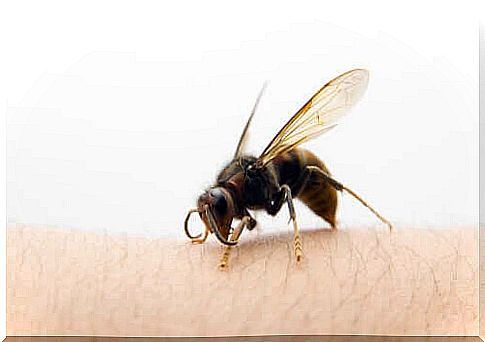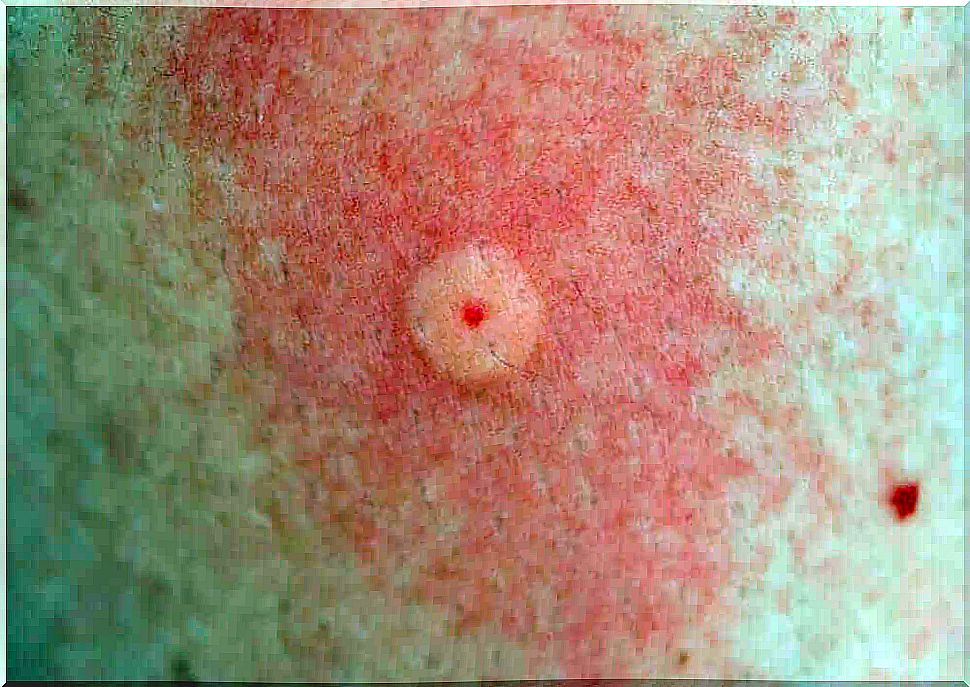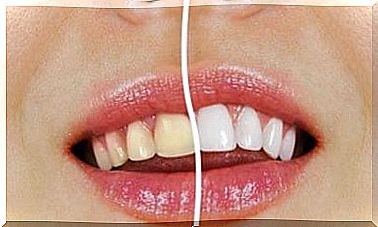What To Do With An Asian Hornet Sting?
The bite of the Asian hornet is serious only in a small percentage of cases. It is, however, a boring episode that results in severe symptoms. The danger is that the person who has been bitten will have an allergic reaction.

The bite of an Asian hornet is an episode that should be approached with caution. In most cases, it does not lead to serious consequences, but there are also situations where it causes death. Indeed, deaths have already been recorded for this cause.
The Asian hornet was first detected in Europe in 2004. It is named so because it originates from Southeast Asia, although it is known as the black wasp due to its color. From Welsh lands it spread to other countries on the continent.
In addition, the bite of an Asian hornet inoculates more venom than that of a normal wasp. The course of the seizure depends on the person who was bitten. If it is an individual allergic to this type of insects, the situation can become serious.
The bite of an asian hornet

It is important to point out that the bite of an Asian hornet only causes death in 0.08% of cases. It is a very low rate. However, all people who are attacked by this type of insect develop a more painful reaction than that produced by the common wasp. This is because the Asian wasp is larger and has more venom in it.
The Asian hornet, whose scientific name is Vespa velutina , is an insect that can measure up to 3.5 cm. The most characteristic is its size and the black color of its body, which distinguishes it from European wasps. Unlike bees, these wasps can sting a single person multiple times.
On the other hand, the main risk of an Asian hornet sting is that it leads to an allergic reaction of the immune system. Indeed, the complexity lies in the fact that, in most cases, it is impossible to know in advance whether or not this type of reaction will occur in the person. There are no tests that can predict an allergy.
The effects of the bite
The first effect of the bite of an Asian hornet is a sharp pain, like a prick from a large pin. Then you feel a strong irritation, similar to a burn. Then, much of the skin becomes inflamed and painful for about 24 hours.
One of the risks is that these insects attack sensitive areas such as the mucous membranes of the mouth, eyes, or nose. Also, be aware that Asian hornets release a marking pheromone from their sting. And that prompts the rest of the colony to attack.
If there is an allergic reaction, there is a risk of anaphylaxis within 30 to 60 minutes before the bite of the Asian hornet. This reaction contains 4 degrees:
- Degree I: there is generalized hives, itching, anxiety and malaise
- II : inflammation of the mucous membranes, feeling of tightness in the chest, abdominal pain, nausea, vomiting, diarrhea and dizziness
- Degree III: difficulty in breathing, swallowing and making sounds. Confusion and the feeling of death
- IV: all previous symptoms, as well as hypotension, fainting, incontinence, bluish skin discoloration and loss of consciousness
How to deal with the bite of an Asian hornet?

Asian hornets only attack if they feel threatened. The first thing to do is therefore not to approach their nests, nor to try to kill them or repel them when they approach. Indeed, it is essential to be careful while exploring shrubs or places where wood accumulates. The best way to avoid these kinds of problems is to prevent them.
If you get stung by an Asian hornet, the most recommended is to apply cold to the affected area. This will help reduce inflammation and pain. It is also possible to apply vinegar compresses in order to obtain the same effects. If the discomfort is great, it is better to apply a corticosteroid cream and take oral antihistamines. And, if necessary, oral corticosteroids as well.
The allergic reaction is a medical emergency that must be treated as soon as possible. Indeed, if the person has a history of this type of allergy, they should go to the hospital as soon as possible. The same is true when a very sharp and sudden reaction is detected. Only 3% of people are allergic but the certainties are not total.









